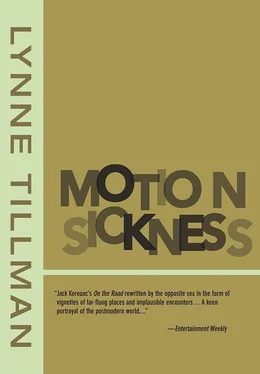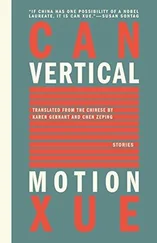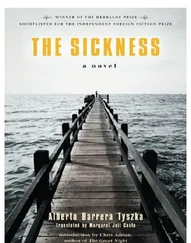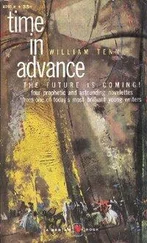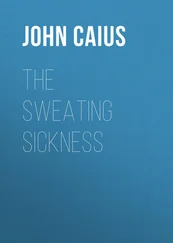On the other hand I might get swept up, embraced by events of history that would bestow upon me the dubious privilege of a certain destiny. At least where the public event meets some personal need. I’m reading Code Name Mary , the autobiography of Muriel Gardiner, a wealthy American who lived in Vienna in the thirties and early forties and became a Resistance fighter, having already become a medical doctor and a psychoanalyst, and saved Communists and Jews. Later Gardiner’s fate is to be reinvented as the friend of Lillian Hellman, as the Julia of Hellman’s Pentimento . Gardiner writes to Hellman: I understand you’ve based a book on me, then never hears from her. She was the only American woman in Vienna working in the underground. She never knew Hellman.
I walk to the Leidseplein. Older women riding bicycles have firm calves and thighs. Men and women carry infants on their backs with no worry of falling. Dutch people have bright large teeth. An Englishwoman explained to me in London that Englishmen, not Englishwomen, think going to the dentist is merely cosmetic. What do the Dutch think?
I choose a café with a view onto the square. And to shake flat wallpaperlike feelings, adaptable to any public or private space, to bars or cafés, I order a genever with a coffee, black and strong. Ordering this combination doesn’t make me feel like the Dutchman at the bar who has also just ordered it but a version of, an imitation of him. He doesn’t see m€ as an homage, but maybe he ought to consider it. Staring purposelessly at a lively group of Dutchmen who order another round of pils , with a lot of gusto, much the way I’ve done coke, staring past them, I spy American Sal, an older man I met in Lindos. He’s in front of one of the more disreputable nightspots, talking to several men, all of whom are shorter and seedier-looking than he. Sal’s turned up like a bad penny.
I move somewhat automatically out of the café into the square so that he’ll discover me. Sal shouts: “Babe, remember me from Lindos? What are you doing here?” He shakes loose from his group of smaller men and runs over, his arms outstretched. “Let me buy you a drink.” It’s about 4 P.M., and I sense I’m about to lose the night. He picks up on this instantly and says, “What’s time? Only these farmers should care about it.” He points to the men he was standing with who don’t look anything like farmers, the ones in storybooks. Then Sal waves his hand at a couple of large blond men eating leverwurst or kaas on small buns or broodjes . He points to Broodje van Kootje, the sandwich shop, and says, “l love that place. This is a great country.” He throws out his arms as if to embrace it, then sighs and grabs my arm. “Lindos,” he says, “you should have stayed. It got crazy. Bad shit went down. Basil got done for smuggling rugs into Turkey.” “Basil the rug merchant?” “Yeah, him, that guy you didn’t want to sleep with. And after all that I found Sylvie. I want you to meet her. She lives here. That’s why I’m here.” He throws his arm around me, one strange comrade to another. “Don’t you miss that moussaka?”
“I realized that modesty helped me to shine, humility to conquer and virtue to oppress.”
— Albert Camus
This could be a fairy tale. Each day is something of an invention. If it were a fairy tale there could be a reversal of fortune even for me. Literal fortunes are reversed daily, as the dollar drops. Dutch paper money, ornate and florid, puts the American dollar in its place. The money has shrunk. Dollars look small and grim, worrying reminders of the American way. I have many more postcards than dollars, the postcards soothing to me as the shrunken dollars are to long-term foreign sufferers of Wall Street. There could be a reversal of fortune even for me. “The Millionaire” might walk into the hotel and hand me a check for the fabled one million, or I could find a cache of diamonds in the Leidseplein, or a billfold with hundreds of sober deutsche marks in the Art Deco café of the Hotel Americain, the only part of the hotel, Huub explains, that was kept Art Deco after being bought by a British corporation. I could become a drug runner, live high for a year and then get busted at some border or other, caught red-handed and red-faced.
In a fairy tale I’d fall asleep and wake from this horrible dream of capture, a dream that seemed so real I could have sworn it had happened. Some days pass like dreams, though one can imagine that they really did happen. One day my money will run out, there won’t be a pot of gold at the end of the rainbow, the beast will not have turned into a prince, and Prince Charming will not have broken the spell. My mother writes in her last letter, Someday you’ll have to face the music.
Face the music. I love music but I don’t like wearing headphones and I’ve been playing the same tapes over and over and I don’t want to buy any. I don’t want to accumulate. I want to travel light. I leave books in hotel rooms when I’ve finished them. I hold on only to the pictures, the postcards, my playing cards that mark presence and absence. The more the days that pass seem like dreams, the more my dreams seem mundane, real. Friends crowd the frame. Fights are refought, humiliations and fears paraded, crazy dialogue intrudes upon a few sensible sentences, I am many different ages. The world ends. Images are fixed and unfixed. In one dream Jessica looked like an angel. And then like a devil, with a carnal smile, then an angel again.
I have a postcard of angels painted by Fra Angelico which I bought after Paul and Alfred argued about who was greater, he or Giotto. My postcard is not a vote, although these days, where I come from, it ought to be part of a write-in campaign, one meant to flood Washington, composed of postcards from foreign places or paintings by well-known artists that would flood the capital with desire for something different. The Herald Tribune is mercifully short, its inadequacies less important when every day it’s more obvious that I’m not at home and not able to be at home here, one of those mixes, mixes of mixed blessings, like cake mixes, boxed and available at stores everywhere.
In bread stores I ask for bruin brood , in cheese stores, oude kaas or yogurt, at Broodje van Kootje, a broodje met leverwurst . The storeowners hand me the goods and speak in English, as if somewhat insulted that someone tried to speak their language. Not insulted in the sense that their language is being mutilated, though it is, but insulted that someone might think they didn’t know English. If this is true, it could be because they’re proud of their ability to speak many languages, or impatient with my lack of understanding of the hegemony of English, or it just takes less of their time to conduct business this way. The most routine transaction is cluttered with such considerations.
With Huub I never try to speak Dutch, to use Dutch words,’ as if it would be a fiction he wouldn’t countenance. He reports on local politics, the end of funding for painters, subsidies, drug centers. He tells stories about local customs. About enduring hatred and memory. When Germans come to the city at Easter, suddenly Amsterdammers don’t speak German. Or they vindictively direct them, in their Mercedes, out of the city, not to the places they want to go. He tells anti-Belgian jokes, about their patates , their beer, jokes turning on the stupidity of Belgians. I’d never heard anti-Belgian jokes before, they’re the same as all anti-jokes, but to me represent a new prejudice. To this white American, white Europeans hating white Europeans strikes a different note from races hating races. At first it sounds less threatening and ugly, more eccentric and curious, or sophomoric, like New Jersey’s rivalry with New York. But a new and different prejudice seeming eccentric obscures official history, the white European wars that divided Europe into nation-states with long grievances, so that even in tolerant Holland Huub still speaks of the South as Catholic and the North as Orange or Protestant. I tell Huub about the American businessman I heard about. Years ago, when China and the U.S. opened hade, he traveled to China from the Midwest and carried a bag of his laundry with him. Because all his life he’d heard how great Chinese laundry was. When the laundry shrank his leisure suit, he was indignant. He thought the Chinese were jerks. Huub shakes his head and laughs, Yah, but he carried his laundry to China. Right, I say.
Читать дальше
